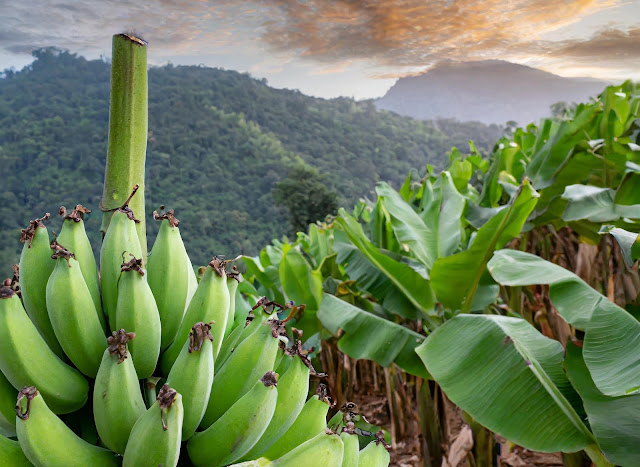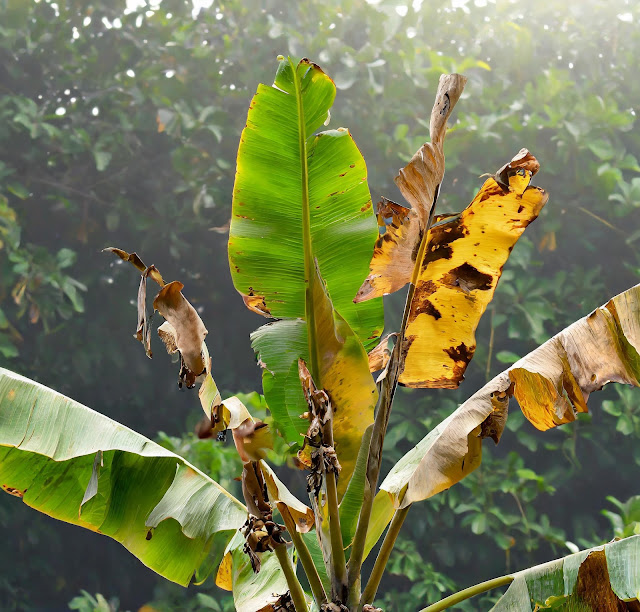Banana is one of the most widely consumed fruits worldwide, making its cultivation a crucial aspect of agriculture. However, fusarium wilt, caused by the fungus Fusarium oxysporum f. sp. cubense (Foc), poses a significant threat to banana plants, leading to devastating losses in terms of yield and quality. Integrated Disease Management (IDM) approaches have emerged as effective strategies to combat fusarium wilt and ensure the sustainability of banana production. By implementing a combination of preventive measures, cultural practices, biological control agents, and chemical treatments, IDM aims to reduce the occurrence and severity of the disease.
Understanding the Causes and Symptoms of Fusarium Wilt
Fusarium wilt of banana is a devastating disease that affects one of the world's most important crops. It is caused by the soil-borne fungus Fusarium oxysporum f. sp. cubense and can lead to significant yield losses and economic damage. The pathogen infects the vascular system of the plants, leading to wilting, yellowing, and eventually death of the plant. The fungus can persist in the soil for many years, making it difficult to control. Once the soil is infested with the Fusarium oxysporum, it can be difficult to eradicate, making management of the disease a critical concern for banana growers.
Symptoms of fusarium wilt include yellowing and wilting of older leaves, starting from the lower part of the plant and gradually progressing upwards. The infected plants often have a characteristic reddish-brown discoloration in the vascular tissues. As the disease progresses, the entire plant may collapse and die.
The Importance of Integrated Disease Management
Integrated disease management is a comprehensive approach that combines various strategies to control the spread and impact of Fusarium wilt of banana. This approach is crucial because relying solely on one method often proves to be insufficient in controlling this devastating disease. By combining different approaches, we can target different stages of the disease cycle and reduce the overall impact of the disease.
Cultural practices, biological control, and chemical control methods all play a crucial role in integrated disease management. Each strategy has its strengths and weaknesses, and by using them in combination, we can create a more sustainable and effective approach.
Cultural Practices for Preventing Fusarium Wilt
Cultural practices are an essential component of integrated disease management for fusarium wilt. These practices aim to disrupt the disease cycle and decrease the severity of infection.
1. Crop rotation is one such practice, where bananas are grown in a different field after a certain period to reduce the buildup of the pathogen in the soil. This helps break the disease cycle and reduce the risk of infection.
2. Maintaining proper soil fertility is also important in preventing fusarium wilt. Balanced fertilization, including the application of organic amendments, can improve plant health and increase resistance to diseases. Organic amendments such as compost and manure can enhance soil structure, nutrient availability, and microbial activity, creating a more favorable environment for the growth of healthy plants.
3. Proper irrigation management is another cultural practice that can help prevent fusarium wilt. Overwatering can create conditions favorable for fungal growth, while under-watering can stress the plants and make them more susceptible to infection. Implementing a well-designed irrigation system that provides consistent moisture levels can help reduce the risk of fusarium wilt.
Biological control methods offer a sustainable and environmentally friendly approach to managing fusarium wilt. These methods involve the use of beneficial microorganisms or natural enemies to suppress the growth and activity of the pathogen. Biocontrol agents such as Trichoderma spp., Pseudomonas fluorescens, Pseudomonas aeruginosa, and Bacillus spp. have shown promise in reducing the incidence of fusarium wilt.
Trichoderma spp. are soil-borne fungi that have the ability to colonize the roots and rhizosphere of plants. They produce enzymes that can degrade the cell walls of the pathogen, inhibiting its growth and preventing infection. Bacillus spp., on the other hand, produce antimicrobial compounds that can directly suppress the growth of Fusarium oxysporum f.sp. cubense.
The use of biocontrol agents can be integrated with cultural practices to enhance disease management. For example, applying biocontrol agents to the soil before planting can help establish a beneficial microbial community that can outcompete the pathogen. In addition, foliar sprays of biocontrol agents can provide protection against infection.
Chemical Control Options for Fusarium Wilt
Chemical control methods, involving the use of fungicides, can provide short-term suppression of fusarium wilt. Fungicides such as propiconazole, benzimidazoles and thiophanate-methyl have been used to manage the disease. These fungicides work by inhibiting fungal growth and can be applied as soil drenches or foliar sprays.
However, the long-term sustainability of chemical control measures is a concern. Continuous and indiscriminate use of fungicides can lead to the development of resistant strains of the pathogen, rendering the chemicals ineffective. Moreover, the use of fungicides can have negative impacts on the environment and human health.
It is important to use fungicides judiciously and in combination with other disease management strategies. Integrated disease management should prioritize the use of cultural practices and biological control, reserving chemical control as a last resort or for severe outbreaks.
Developing an Integrated Disease Management Plan for Banana Plantations
To develop an effective integrated disease management plan for banana plantations, it is important to assess the specific conditions and challenges faced by each farm. This can be done through regular monitoring and scouting for disease symptoms, as well as soil testing to identify nutrient deficiencies or imbalances.
Based on the assessment, a combination of cultural practices, biological control, and chemical control methods can be tailored to the specific needs of the farm. This may include implementing crop rotation, optimizing soil fertility, using resistant banana varieties, and integrating biocontrol agents into the management plan.
Regular monitoring and evaluation of the disease management plan are crucial to ensure its effectiveness. Adjustments may need to be made based on the performance of different strategies and the changing dynamics of the disease. Continuous education and training of farmers on integrated disease management practices are also important to promote adoption and success.
Conclusion
Fusarium wilt of banana is a devastating disease that poses a significant threat to banana production worldwide. To effectively manage this disease, an integrated disease management approach is crucial. Cultural practices such as crop rotation, maintaining proper soil fertility, and implementing good irrigation management can disrupt the disease cycle and decrease the severity of infection. Biological control methods, involving the use of beneficial microorganisms or natural enemies, can provide sustainable and environmentally friendly solutions. Chemical control options should be used judiciously and in combination with other strategies, as the long-term sustainability of these measures is a concern. The use of resistant banana varieties has shown great promise in managing fusarium wilt, and ongoing breeding programs continue to develop improved varieties.
By combining these different approaches, integrated disease management can effectively control fusarium wilt, ensuring the continued production of healthy bananas and protecting the livelihoods of farmers worldwide. It is through a holistic and adaptive approach that we can safeguard banana production and meet the growing demand for this beloved fruit.
Thank you for being part of this incredible journey.
Mohamed Mohamud SH Hassan
PathoSolutions Founder


